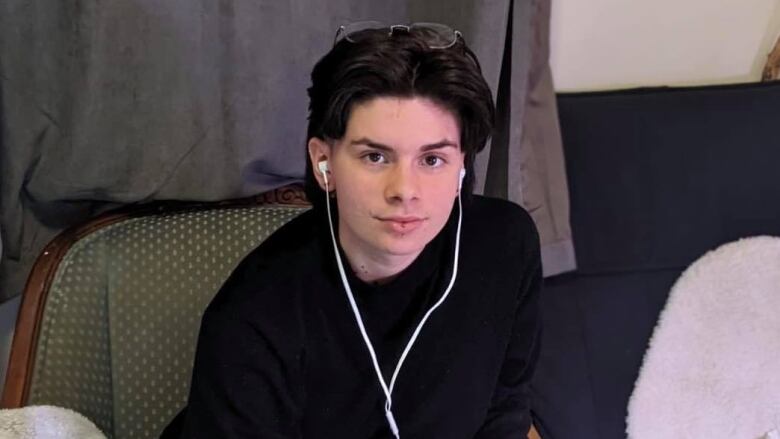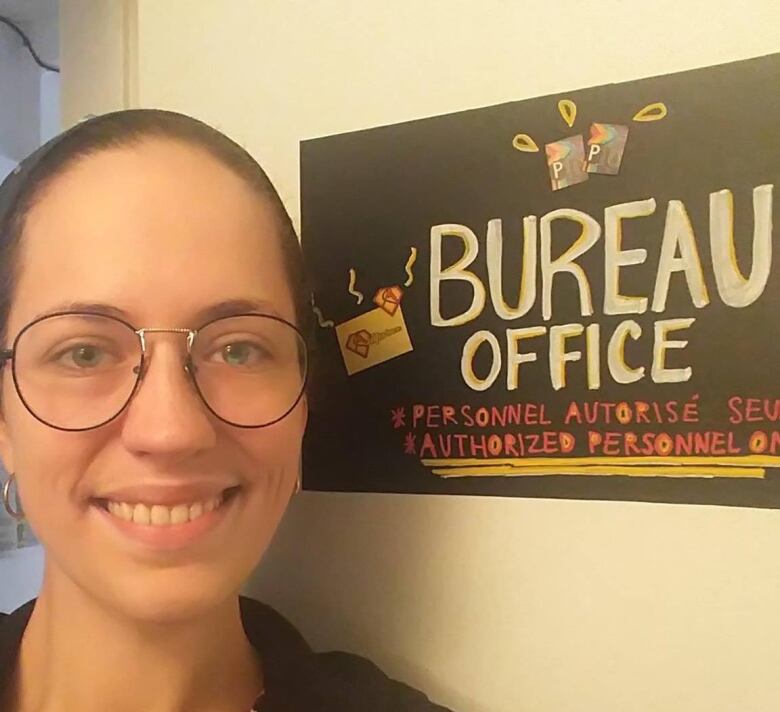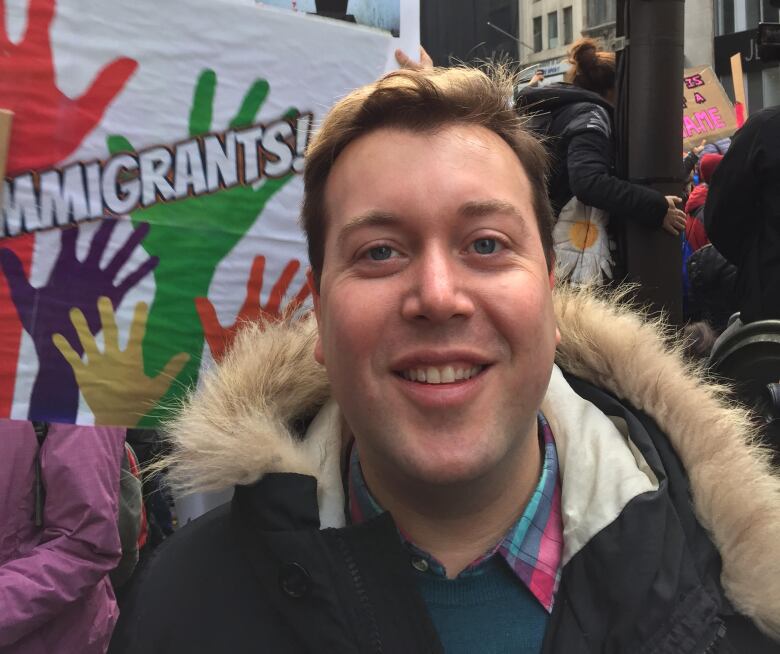The pandemic isn't stopping Montreal's LGBTQ+ youth from staying connected
Statistics show gender-diverse Canadians taking biggest hit to mental health

Many safe spaces integral to Montreal's LGBTQ+ youth community have shut down during the pandemic.
Community groups have been working to recreate those safe spaces online. But for some members, that isn't an option.
"Look, I really want to come to your stuff, but I can't have my mom walk in while I'm on this group, and I can't tell her I'm gay. It's just not possible for me," Otto Vic quotes a message she received from a young person who used to attend her organization's programs, before the pandemic pushed everything online.
Vic is the executive director of Project 10 Montreal, a non-profit organization that offers support and activities for LGBTQ+ youth between the ages of 14 and 25.
This kind of message is something that resonates with many LGBTQ+ youth, as some are now tied to their households during lockdown. And in some cases, these households may not be the most accepting.
Vic says that many teens and young adults relied on being able to leave their homes and go to school or non-profit organizations with youth groups to develop a feeling of safety and community.
"That is something that went out of the window really quick," says Vic.
But it is not just about programs and clubs. In some cases, general public spaces like the Gay Village gave them a sense of safety as well.
"It felt like even if I'm not necessarily talking to these people, even if I don't know these people, I know that I'm safe in those areas," says 21-year-old Isaiah Hagerman, a two-spirit Miq'maw and board member with Project 10 Montreal.
Gender-diverse Canadians experiencing poorer mental health
Statistics Canada released the results of an online questionnaire held from April 24 to May 11 last year, comparing the mental health of male, female and gender-diverse Canadians.
The study suggests that participants who "did not report their current gender as exclusively female or male, reported poorer mental health during the COVID-19 pandemic than both female and male participants."
Almost 70 per cent of gender-diverse participants said they were experiencing "fair [to] poor mental health." More than half of the gender-diverse participants were under the age of 30.

Robert-Paul Juster is also seeing this trend in those ages 18 to 25 that identify as a sexual or gender minority. Juster is a neuroscience researcher and assistant professor in the department of psychiatry and addiction at the Universit de Montral.
The survey he conducted has over 3,200 respondents so far, asking people what coping strategies they are using to get through the isolation.
"What was kind of striking was LGBT 18- to 25-year-olds were blaming themselves the most, engaging in the most wishful thinking and in the most avoidance compared to the other age groups," says Juster.

Reaching out and helping themselves
Despite the hit to their mental health, Juster's preliminary results also found that LGBTQ+ respondents across all age groups were seeking social support one of the positive ways to cope.
Vic says she's seen this kind of resilience in one particular youth involved in her organization's services. Their identity was not revealed in order to protect them from being potentially outed.
"They would call in from just random places, you know, they'd use their minutes, called into the Zoom room, and they would call in from the river bank on the St-Lawrence, or they would call from a park, or they would go over to the McDonald's to be able to join," says Vic.
"And I'm just impressed that they saw that obstacle and they were like 'Nope! It's fine, I know how to get over this."
Other youth, like Hagerman, are taking this time for some self-reflection.
"I do have time to think to sit by myself, and think to myself, and you know, journal and go to therapy online, and figure myself out so that hopefully when this pandemic has calmed down a bit, that I can go back out into those safe spaces that are still there, and really add to them," says Hagerman.
Creative solutions for pandemic problems
Aside from self-reflection, Hagerman says feeling his emotions, whatever they are, goes a long way to staying mentally healthy.
"You have to treat it with self-compassion and self-love and like recognize that 'I am feeling alone and that's okay,' because as our community continues to prove that we're just the most resilient people in the world, we're just constantly getting through things," says Hagerman.
Juster stresses that focusing on problem solving is the healthiest way to cope. And in some cases, that can simply mean maintaining a healthy diet or staying active.
"These are all things that are within peoples' control, that are so intertwined with stress," says Juster. "So I think being really mindful of these health behaviours, because they will actually amplify our stress in the future, if they're maladaptive."
Some organizations geared to help LGBTQ+ youth, like Project 10 Montreal, are still up and running online amid the lockdown.
"[We're] making sure that youth still have connections to one another, to mentors [and] to the mental health support that they need throughout this pandemic, in a number of ways that both prioritize socialization but also having fun," Vic says.
And for youth who don't feel comfortable reaching out to those services, Hagerman says something simple like a Zoom dance party with friends can go a long way to make you feel a bit better during the lockdown.
"They're a little bit awkward, but you know, I'll take awkwardness over being alone any day, so there's that!" he says.
For LGBTQ+-specific resources, here is where to get help:
- Interligne (previously Gai coute) offers free, confidential telephone hotline and email assistance and guidance.
- Project 10 offers assistance to LGBTQ+ youth ages 14-25.
- Alterhros offers resources online for members of the LGBTQ+ community of all ages.
- Aide aux trans du Qubec (ATQ) offers French assistance to transpeople.
- Action Sant Travesti(e)s & Transsexuel(le)s du Quebec (ASTTQ) offers assistance to transpeople in English, French and Spanish, online free of charge.
- The West Island LGBTQ2+ Centre holds support groups and provides other services for people of all ages.
This story is part of the special CBC Quebec projectOut of the Dark: Real Talk on Mental Health.If you are having a hard time coping,here are some resources that could help.












_(720p).jpg)


 OFFICIAL HD MUSIC VIDEO.jpg)
.jpg)



























































































